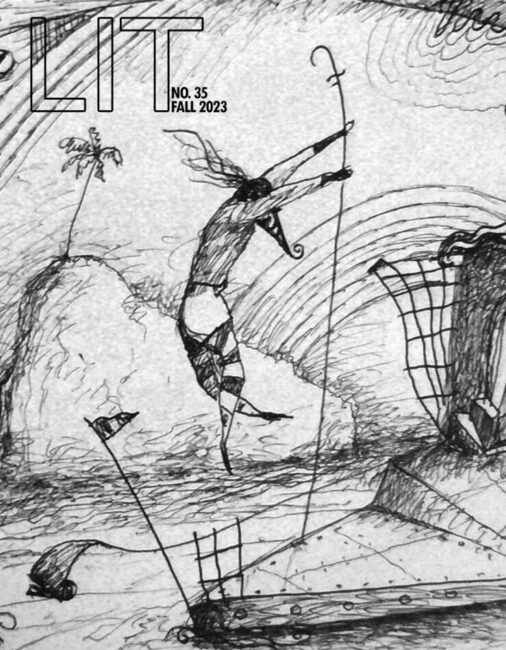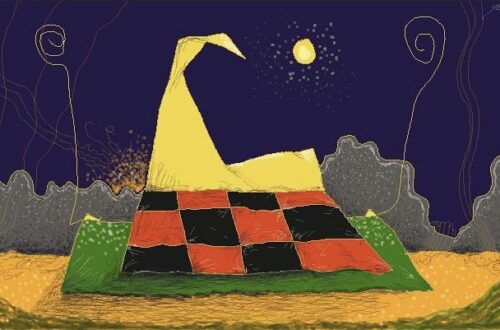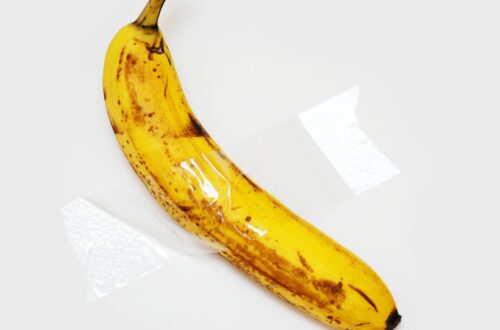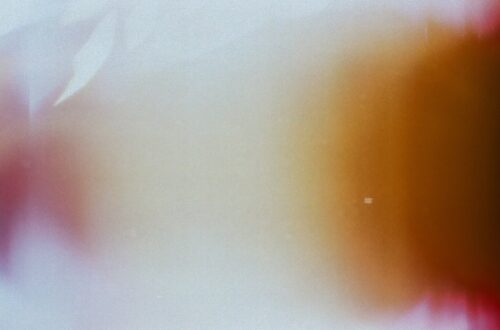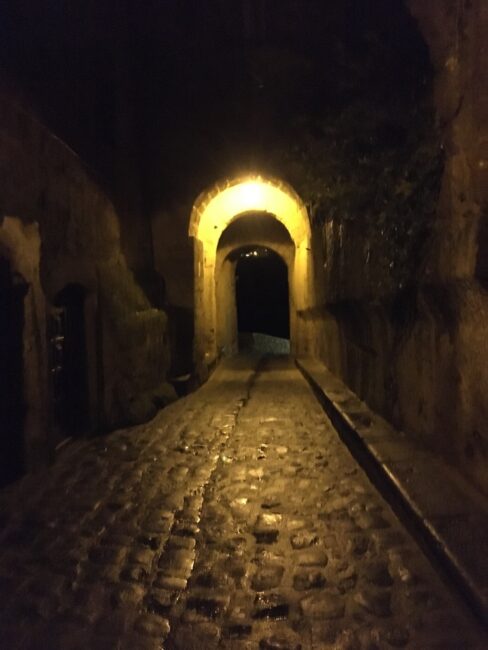
"Hehasnoname, 1-5, 7" by Sharron Hass Translated from the Hebrew by Marcela Sulak
photo by John Peter Apruzzese
Where are you going? Not far from here.
Further down the slope of the corridor.
There despair will be defeated.
I’ve nothing against it but father’s dead body.
Poetry (I still don’t know what it is exactly)
and the shadow that changes its names since my birth.
מּוזִיקַת הַּנָתִיב הָרָחָב
שרון אַס
לְאָן אַּתְ הֹולֶכֶת? לֹא רָחֹוק מִּכָאן.
הָלְאָה ּבְמֹורַד הַּמִסְּדְרֹון.
ׁשֵם הַּיֵאּוׁש יִנְחַל ּתְבּוסָה.
וְאֵין לִי ּכְנֶגְּדֹו אֶּלָא ּגּוף מֵת ׁשֶל אָב.
הַּׁשִירָה )ׁשֶעֲדַיִן אֵינִי יֹודַעַת ּבְדִּיּוק מַהִי(
וְצֵל ׁשֶּמַחְלִיף מִּלֵדָתִי ׁשֵמֹות.
You who descend after me—
down the corridor Orpheus walked
there’s no redemption, just the request
to walk in a living body on the footpath of death and tell
in this time and in this tongue what is bound in truth
אַּתֶם הַּיֹורְדִים ּבְעִקְבֹותַי –
בַּמִסְּדְרֹון ּבֹו ּפָסַע אֹורְפֵאּוס
אֵין ּגְאֻּלָה, רַק ּבַּקָׁשָה
לִצְעֹד ּבַּגּוף הַחַי עַל מִׁשְעֹול הַּמָוֶת ּולְסַּפֵר
וְהַּפַעַם ּבִלְׁשֹונִי, מַה ּכָרּוךְ ּבָאֱמֶת
I’m not yet giving you names or adjectives, muse,
idol, desire, zohar
(pinecone or leaf wreath, stairs ascending, descending,
city or place that will force inhabitants to settle for some metal
and the blessings of icons)
I can’t anymore, no I can’t
my shadow that I loved (face to face
with the leftover salt (the blood) the oranges)
to taunt “who is the king
if not the killer who parts herself from her desire
did it tell the truth, the voice from the dark depths at least”
at the end the awe is as great as the grief.
כְּבָר אֵינִי מְכַנָּה אוֹתָךְ בִּתְאָרִים, מוּזָה
צֶלֶם, תְּשׁוּקָה, זֹהַר
אִצְטְרֻבָּל אוֹ†זֵר עָלִים, מַדְרֵגוֹת עוֹלוֹת†יוֹרְדוֹת)
אוֹ†עִיר, מָקוֹם שֶׁיַּכְרִיחַ תּוֹשָׁבָיו לְהִסְתַּפֵּק בִּמְעַט מַתָּכוֹת
(וּבְבִרְכַּת הַסְּמָלִים
אֵינִי יְכוֹלָה יוֹתֵר, לֹא, אֵינִי יְכוֹלָה
הַצֵּל שֶׁלִּי (זֶה שֶׁחִבַּבְתִּי פָּנִים אֶל פָּנִים
(עִם שְׁאֵרִיּוֹת הַמֶּלַח (הַדָּם) הַתַּפּוּזִים
לוֹעֵג “מִי הוּא מֶלֶךְ
“?אִם לֹא זוֹ הָרוֹצַחַת מַה שֶּׁמַּפְרִיד בֵּינָהּ לְבֵין הַתְּשׁוקֹות
:הַאִם אֱמֶת דִּבֵּר הַקּוֹל מִקַּרְקָעִית אֲפֵלָה
.בַּסּוֹף, הַהִשְׁתָּאוּת גְּדוֹלָה כַּיְּגוֹנוֹת
in the lost nights (insomniac) the bed I climb into
is the bed of the dead, the river, or the ill, and I lie inside the body
that it isn’t mine—sleep doesn’t ring remorse around its dream
crowded with eyes the dark opens on the tail
of the ones who raspingly flee to the pit, against
or through the astonishment of grief—am I writing or being written
now this is a simple question while in the light that unweaves
narratives revealing we are walking (and plowing) on the back of the dead
hit with blinding sobriety (half-holy from a slow wound)
we don’t discern in the murky and the scorching, the approach
בַּלֵּילוֹת הָאֲבוּדִים (חַסְרֵי הַשֵּׁנָה) הַמִּטָּה אֵלֶיהָ אֲנִי נִכְנֶסֶת
הִיא מִטָּתוֹשֶׁל הַמֵּת, נָהָר, אוֹ מַחֲלָה, וַאֲנִי שׁוֹכֶבֶת בְּגוּף
שֶׁאֵינוֹ שֶׁלִּי – הַשֵּׁנָה אֵינָהּ עָגָה חֲרָטָה סָבִיב חֲלוֹמוֹ
עֵינַיִם צְפוּפוֹת הַחֹשֶׁךְ פּוֹקֵחַ עַל זְנָבוֹת
הַנִּמְלָטִים בָּאִוְשָׁה אֶל הַבּוֹר, כְּנֶגֶד
אוֹ מִבַּעַד לִיגוֹן הַתַּדְהֵמָה – הַאִם אֲנִי כּוֹתֶבֶת אוֹ נִכְתֶּבֶת
זוֹ כְּבָר שְׁאֵלָה פְּשׁוּטָה בְּעוֹד בָּאוֹר הַפּוֹרֵם
עֲלִילוֹת מִתְבָּרֵר אָנוּ פּוֹסְעִים (וְחוֹרְשִׁים) עַל גַּבֵּי הַמֵּתִים
(מֻכֵּי סַנְוֵרִים מִפִּכָּחוֹן (חֵצִי קְדוֹשִׁים מֵחַבָּלָה אִטִּית
אֵינֶנּוּ מַבְחִינִים בֶּעָכוּר וּבַשּׁוֹדֵף הַמִּתְרוֹמֵם
And another thing, which I say when I step out from plural
returning
to singular
up on the earth
I and the muse mysterious and horrible almost to the same degree
I have the black blood and she wreathed leaves
and the decapitated head isn’t prophesying
it’s blooming
וְעוֹד דָבָר, אוֹתוֹ אֲנִי אוֹמֶרֶת בְּפָסְעִי קָדִימָה מִלְּשׁוֹן רַבִּים
חָזְרָה
לְגוּף יָחִיד
לְמַעְלָה עַל הָאֲדָמָה
.אֲנִי וְהַמּוּזָה מִסְתּוֹרִיּוֹת וַאֲיֻמּוֹת בְּמִדָּה כִּמְעַט שָׁוָה
אֶצְלִי הַדָּם הַשָּׁחֹר וְאֶצְלָהּ הַזֵּר, הֶעָלִים
וְהָרֹאשׁ הֶעָרוּף אֵינוֹ מְנַבֵּא
הוּא מְלַבְלֵב
no view of birth is complete
string of beads—chain—a winding coil—and break
maybe the sacrifice (a recurring destruction of desires)
is the thread—its beginning is there, before
the surrender to pleasure meets its other end
secret and enduring
וְאֵין מַרְאֶה שָׁלֵם שֶׁל הֻלֶּדֶת
מַחְרֹזֶת שַׁרְשֶׁרֶת עִגּוּל מִתְלַפֵּף וְנִתַּק
(אוּלַי הַקָּרְבָּן (הֶרֶס חוֹזֵר וְנִשְׁנֶה שֶׁל תְּשׁוּקוֹת
הוּא הַחוּט – רֵאשִׁיתוֹ אֵי שָׁם, בְּטֶרֶם
הַהִתְמַסְּרוּת לָעֹנֶג פָּגְשָׁה אֶת צִדּוֹ הָאַחֵר
סוֹד וּנְשִׂיאָה בְּעֹל
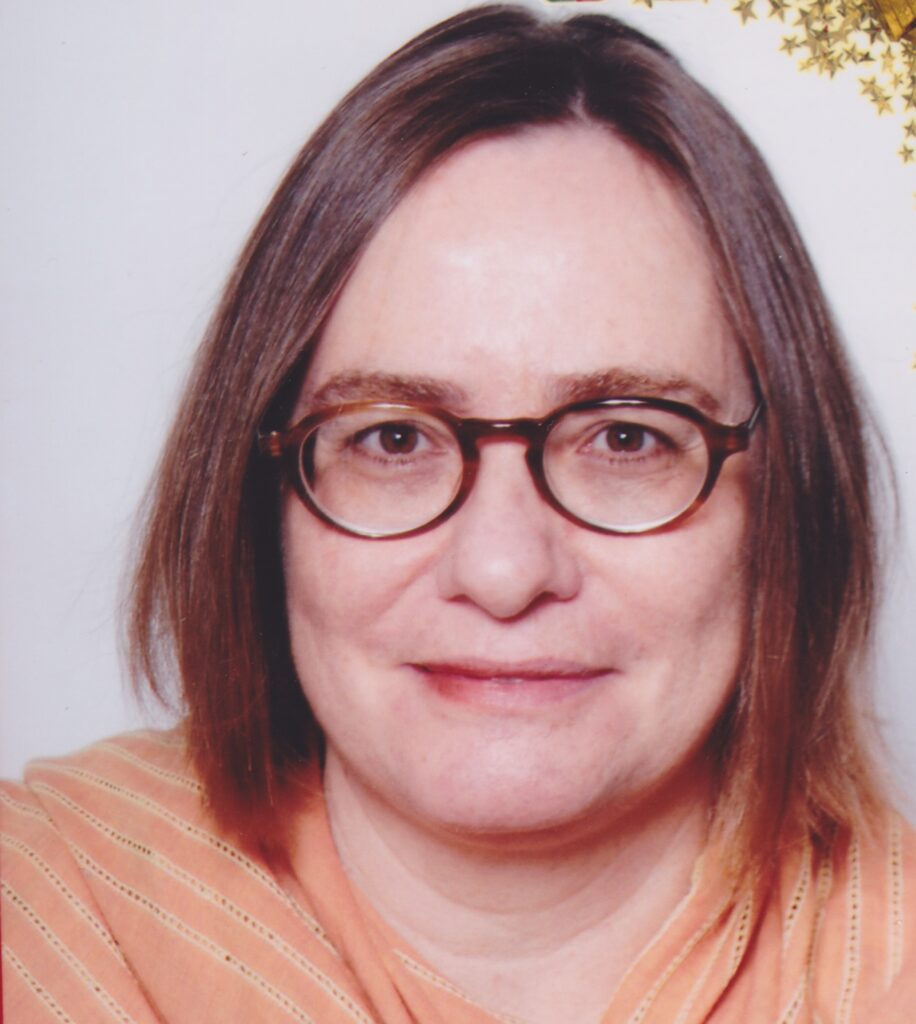
Poet, essayist, and author of six poetry collections, Sharron Hass lectures on literature and poetry at the Alma Institute (Tel-Aviv), at the Tel-Aviv Museum of Art, and teaches in the Creative Writing Program at Tel Aviv University. She is the recipient of several poetry awards, including the Hezy Leskly Award (1997), the Art Council Award (1998), the Prime Minister Award (2003), a Fulbright America-Israel Fellowship (2005), the Bialik Prize (2012), the Dolitsky Prize (2017), and the Amichai poetry prize (2018).
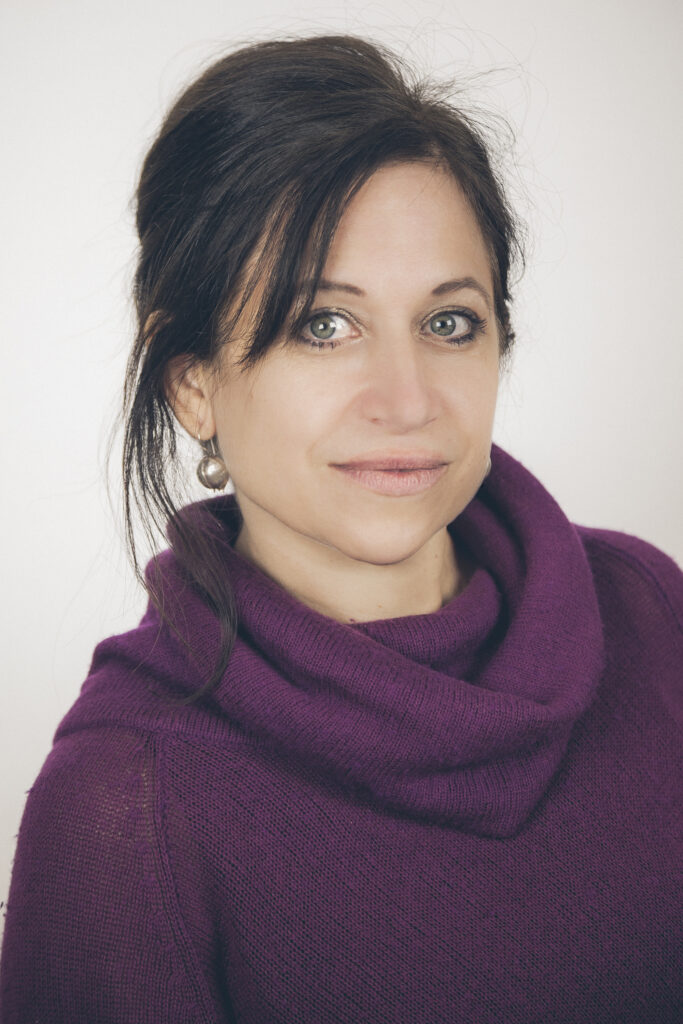
Marcela Sulak’s translations from the Czech include Karel Hynek Macha’s May and K. J. Erben’s A Bouquet of Czech Folktales, from the Hebrew Twenty Girls to Envy Me. The Selected Poems of Orit Gidali, nominated for the 2016 PEN Award for Poetry in Translation. From the French, Mutombo Nkulu-N’Sengha’s Bela-Wenda. Voices from the Heart of Africa). Sulak’s fourth collection of poetry is forthcoming from Black Lawrence Press, with whom she’s published the lyric memoir Mouth Full of Seeds. She’s co-edited the 2016 Rose Metal Press title, Family Resemblance. An Anthology and Exploration of 8 Hybrid Literary Genres. Recipient of a 2017 National Endowment for the Arts Translation Fellowship, Sulak is an Associate Professor of English at Bar-Ilan University in Israel.
